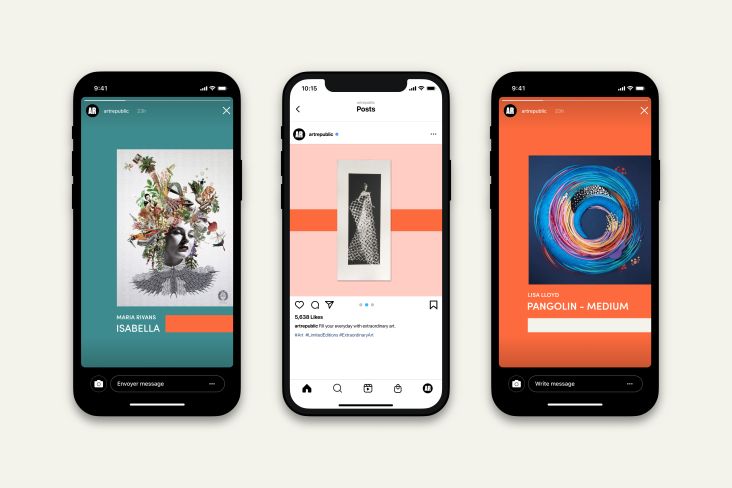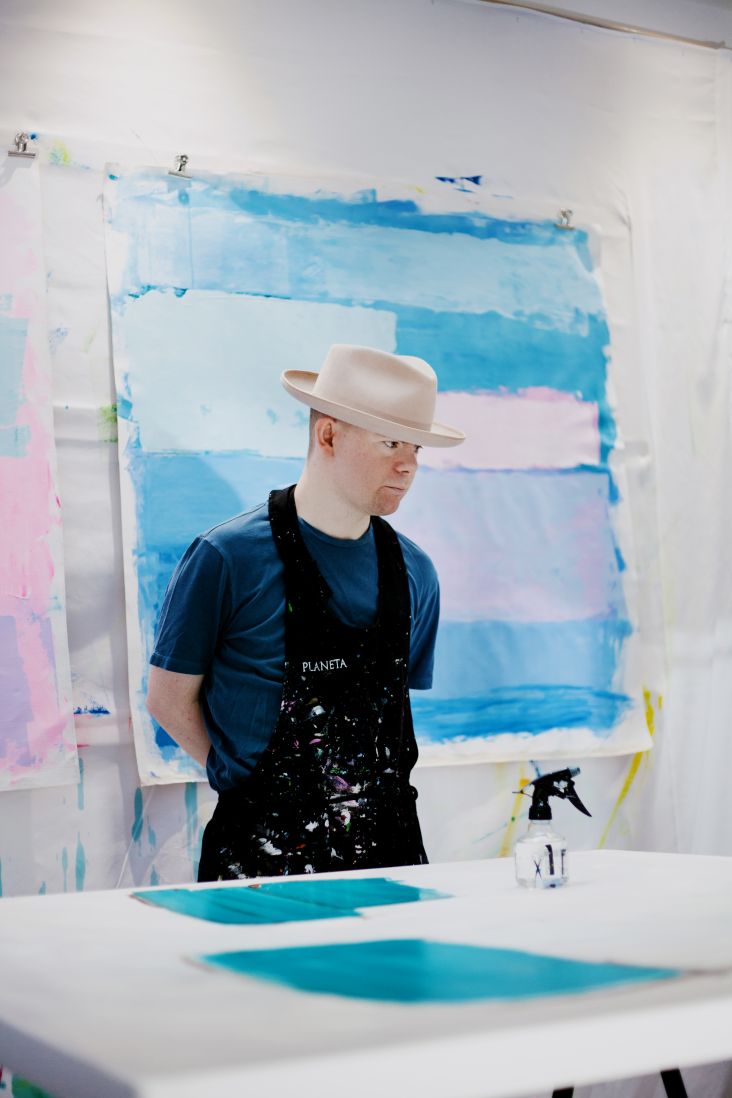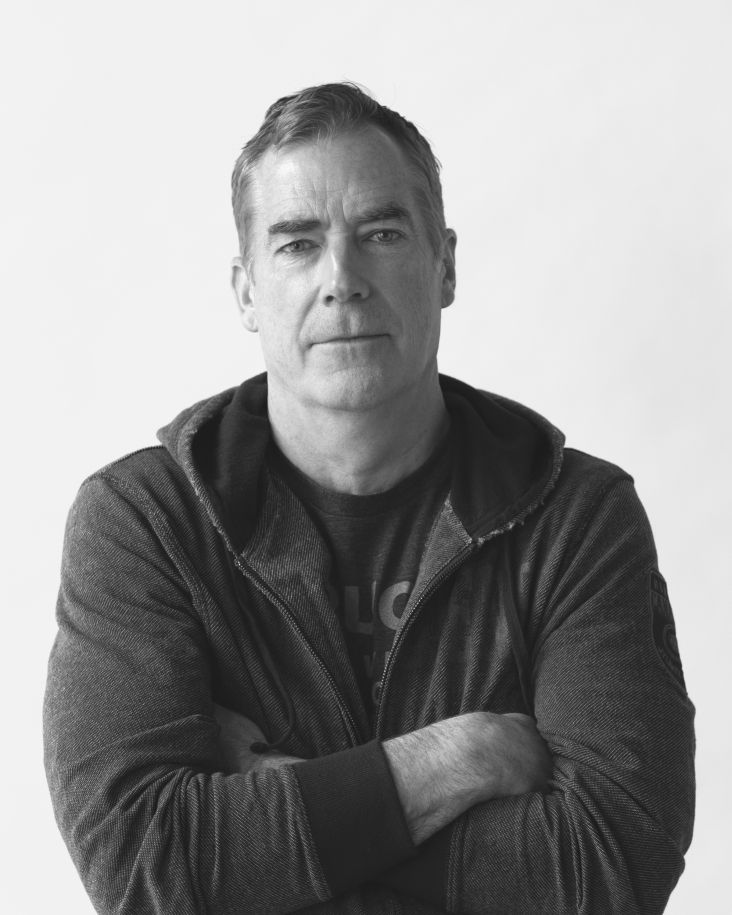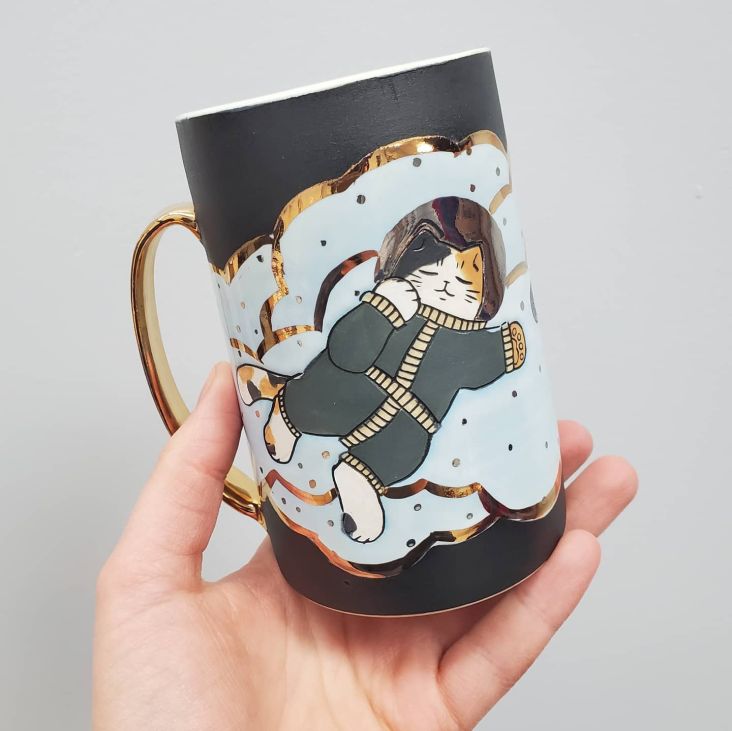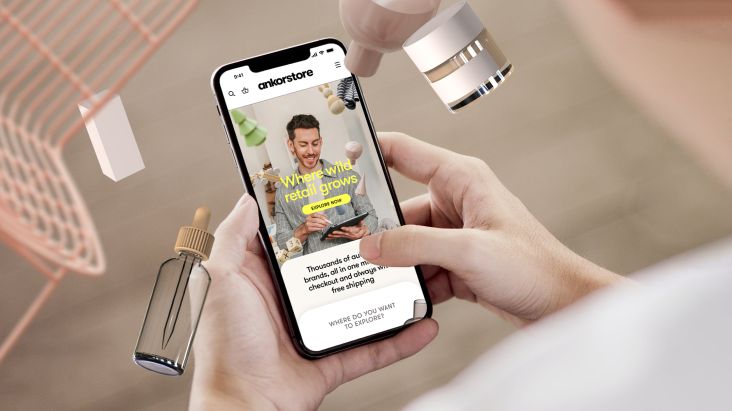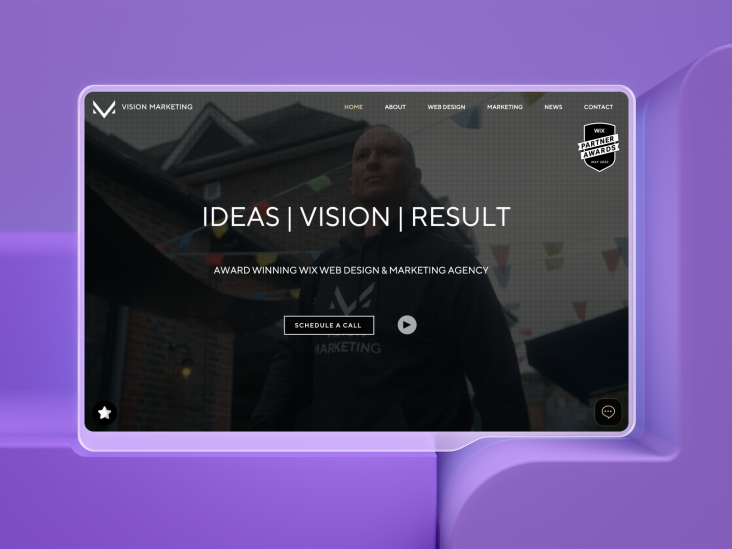Why freelancers worried about going niche could be missing out on big bucks
Time and time again, you'll hear people in the creative industry say that the secret to success is to find your niche. But what does that mean, exactly? The best person to answer that question is Penny Lee, aka The Brand Directoress. She's made a career out of helping creatives find their specialism, and they've seen great success from going niche.
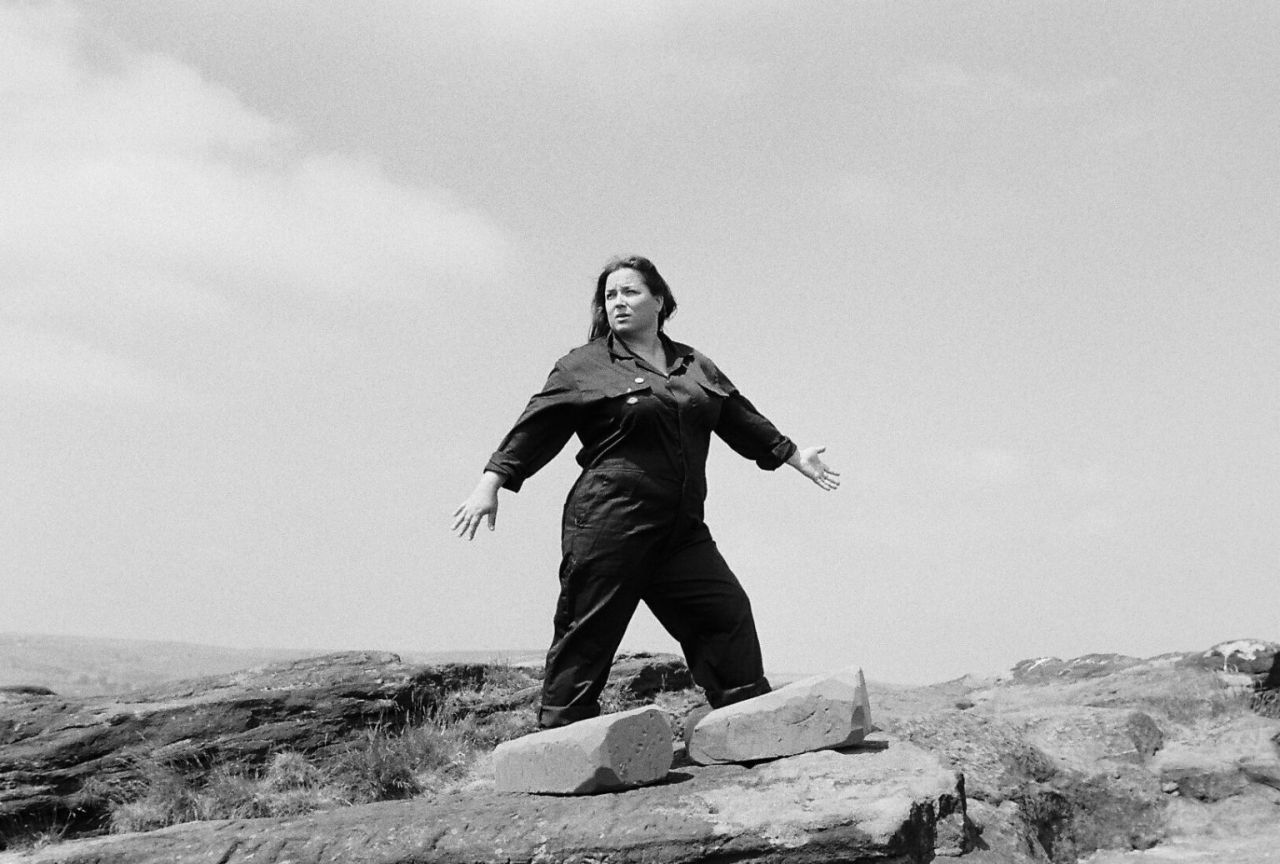
Penny Lee, aka The Brand Directoress. Photography by Jim Marsden
But before we dive in, it was interesting to hear the creative community's thoughts on niches. It seems everyone has a different opinion. There are many arguments for and against this approach. Some have tried to specialise and failed, while others prefer to call themselves generalists to "keep things interesting" and avoid limiting what they can do.
It's where Penny believes "going niche" gets a bad name and is often misunderstood. In our exclusive interview, she explains how she goes about it, the different paths to find your niche, and why doing so can be a game-changer for your earning power. Most importantly, Penny dispels any misconceptions and reveals why a "niche" is more than you could imagine.
Many people are scared of "going niche", but there's nothing to fear, is there?
I see going niche working phenomenally for everyone I've worked with, including myself. It's absolutely transformative. If you embrace a niche, you become more confident about charging for stuff because you're more confident about what you do. You become an expert in that specific area.
The whole thing began with me moving back to the UK when I put the feelers out and started a studio. I was getting some work, trying to figure out the right clients, but it was frustrating because there was misalignment, and it was causing stress. I did spot that some clients really made sense, and they were these kickass women. And I just said, "Fuck it, I'm going niche". I'm just going to work with people that I align with. And then somebody laughed, and that was all the encouragement I needed!
Yeah, that's very you. I love that.
So I stuck that phrase on some badges, and people liked it. By going niche, I finally answered that difficult question about what I do. And what I loved the most was realising how my approach could help others, too, allowing them to figure out their niche and then to tailor their business to suit that mission. Specialising might feel like you're trying something a bit more daring, and you're breaking away from the norm, but really, it allows everything to fall into place.
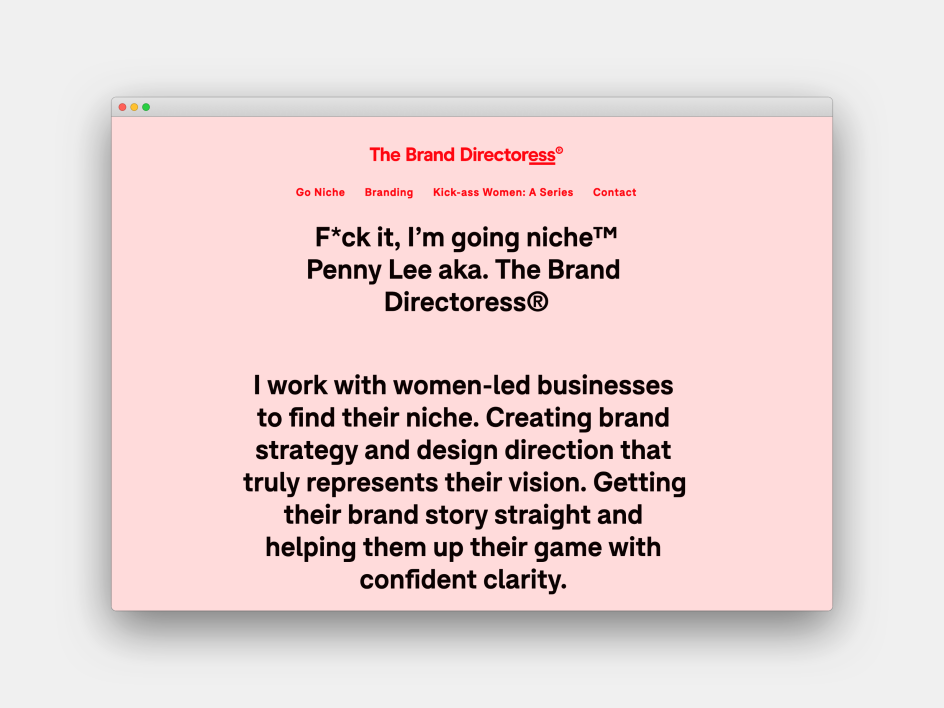
The Brand Directoress
Yeah, exactly. When we start, it's inevitable we'll take on every bit of work we can to survive. But there's a danger of burnout and getting lost, isn't there?
Earlier on, I was trying to figure out this because we have this whole thing of saying yes to everything. But after a while, you realise you need to say no. But say no to what? That's the difficult question. What do you turn down?
Your niche becomes a grounding anchor and an opportunity highlighter. You can keep coming back and asking whether this fits your niche. If it's a no or a yes, that's your answer. The more you focus on a particular niche, the more expert you become. You talk about it, learn it, live it – making sure those yes's go some way to build that expertise every day.
It might be a stupid question, but what does going niche mean? Is it about the type of clients you work with and the sectors you operate in? Or do you mean going niche in the kind of style you have and your services?
It can be all of that. It's very much: what do I do? Who do I do it for? And why do I do it? So for me, you know, "niche seeking brand strategist for kickass women in business". I'm doing brand strategy, my angle is getting down to that niche and getting into what you're about as a kickass woman in business.
The irony is I've had quite many men come to me in recent months, the attitude attracts them. The non Alpha approach and they appreciate I have drawn a line in the sand and am making a stand. It's about not being vanilla. It's like THIS. So there's a service in there. There's who I do it for, and there's also how I do it. That formula is a great base. You're covering the big scary question of 'What do you do?' Yeah. And people want to know, who is it for? If you're going to find the right people, figure out and talk directly to the people you want.
Yeah. Why do we get so afraid of defining our strengths?
The biggest thing that I hear is people are afraid if they niche down, they'll miss out or think they're cutting things out. The focus is on what they lose rather than what they gain. Some people might also interpret specialism as only being able to do one thing forever. That's not the case at all. It's more about having a defined angle. A niche is narrow but deep. You can get into it and enjoy working in lots of different areas. I know what I do and who I do it for. It's really clear and now I can develop it in so many different ways.
So basically, you have made yourself – you've found your niche, in that you are helping others find their niche.
That's the irony. My niche was "kickass women in business" to start with, but, what I get asked to talk about, and what people come to me for help, and also why I think more men have approached as well, is that it is this, they recognise that I found my niche and how I'm telling it and they want the same for them.
People focus on what they lose rather than what they gain if they go niche. It's more about having a defined angle. A niche is narrow but deep. You can get into it and enjoy working in lots of different areas.
It's amazing! You've branded yourself an expert in something that not many people understand. You've become the go-to in this field.
Yeah, it's great. It started with a little badge. It was my thing. I figured things out for myself, navigated into a niche, and it worked out. And now I'm discovering lots of other people have the same problem I once had. And I can now help them. It's fantastic.
When I first went niche, some people asked me if I was worried about losing half of my audience. But the thing is, I don't need hundreds of clients. I need a few of the right ones. Who appreciates what I do and where I can make a difference. Having niche clarity and getting clear on what you do and who you do it for lets the right people find you.
I'd turn it around and say, are you not worried that you might be losing business.
Yeah. Focus on what you'll gain rather than what you lose. If you can flip that mindset, that gives you the courage to go niche.
Is there anyone you've recently helped to find their niche who's thrived because of it?
Absolutely. Dani Molyneux of Dotto is one example. We realised her work was all about powerful messages and typographic art. By embracing this niche, her focus has completely changed. Whose approaching her, you know, who's approaching what work she's doing, what she's prioritising. It has given her a real focus. She can clearly explain who she is, what she does and what she's passionate about.
That strong stance comes across in her range of services, too. And now she's working with much bigger clients, she's launched her own store, and she's just released her own Domestika course. It's all naturally coming together for Dani.
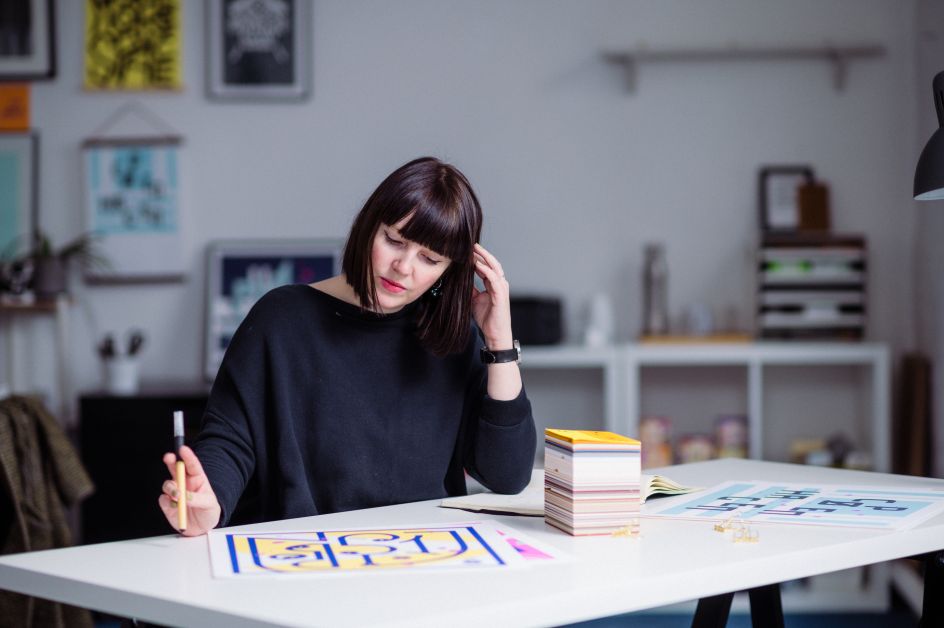
Dani Molyneux of Dotto. Photography by Mark Howe
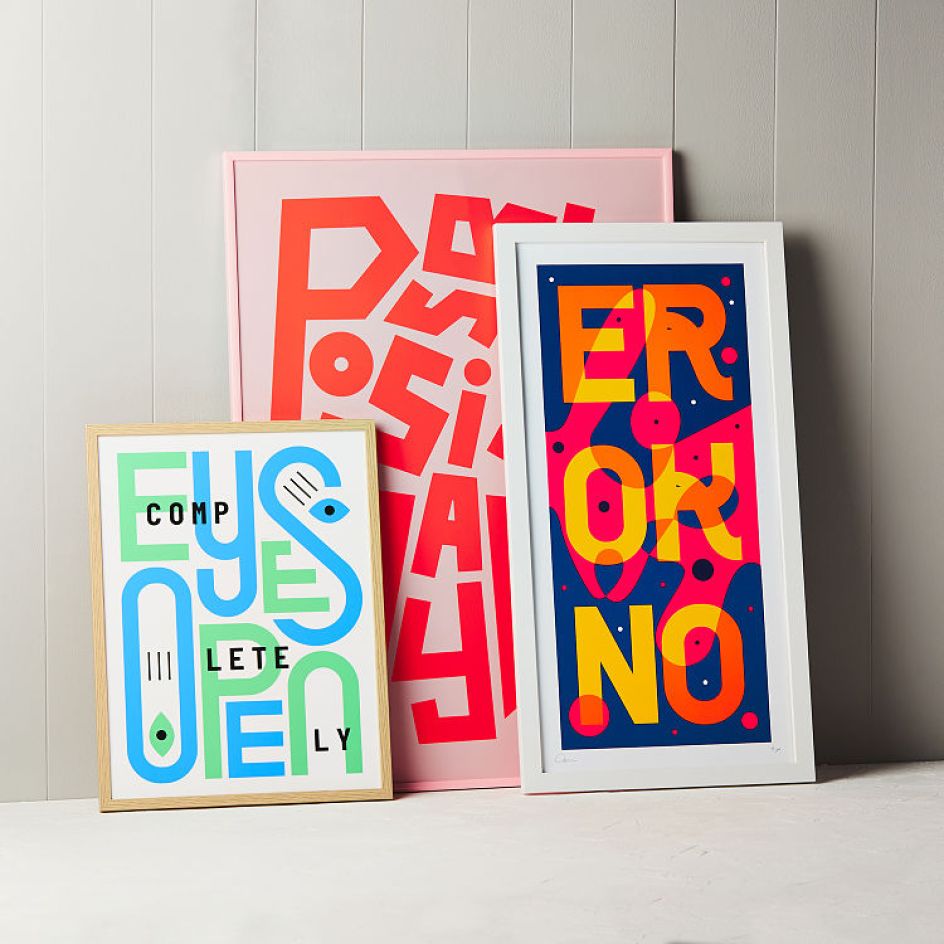
Typographic prints by Dani Molyneux of Dotto
It's simplifying your offering to make it obvious to potential clients?
I offer three different packages at The Brand Directoress, which I describe clearly on my website. They're written in plain English and are easy for anyone to understand. It doesn't limit me to only being able to do these three things, you can always invite a conversation to discuss other ways you can work together. But you have a solid signature offer. I recommend this to anyone. Get niche clarity and focus on your key services and sectors and go from there. Get short and specific. This is the hard and scary part but so worth it.
Exactly. The niche acts as a crown.
Yeah. You become the go-to person for your niche. And then, once you're in a discussion, you can get into more detail. But if you're hitting people with too much information first, or you're being too vague, everyone's got too much on, like, just tell me. Can you be clear in a sentence about what it is you do and how it can help me?
Everything falls into place when you know what you do and for whom?
It brings confidence and clarity. I think you can find a niche and still do many things. It might be a particular approach. For instance, if it's in advertising, you might do some concepting, copywriting, say you can work on shoots, do some filming – you could do all this, that's fine. But there's probably a style. There's probably a niche that's running through it all. A theme.
Many people can offer many services, but how do you do it all differently? Are you focused on storytelling, or are you focused on humans? If you're a photographer, are you focused on portraits or sports? There's something there. You've just got to find it.
I've narrowed myself down to a niche but look at what's opened up! I have so many opportunities and ideas. I'm currently writing a book. I've attended conferences, created courses, done talks and podcasts, attracted clients – specialising has opened many doors.
What key lesson can we take away from all this?
You've got to figure out what you do and who you do it for and then everything will make sense. How you describe yourself, market your business, and the clients you attract. It just gets so much easier.
It might feel overwhelming to find your niche. Perhaps start with this question: what would you do if you could start over? Don't think of the consequences. Be brave.
You can also ask family and friends to describe you and your business. Is there a theme? Does it match what you think? Or is there room for improvement? If people are confused, this gives you a push to control the narrative. Get clear on your niche. Because the next time someone asks, you'll be clear and compelling. Still not sure? Ask yourself these three questions: Who? What? And why? It's a really good place to start.




 by Tüpokompanii](https://www.creativeboom.com/upload/articles/58/58684538770fb5b428dc1882f7a732f153500153_732.jpg)


 using <a href="https://www.ohnotype.co/fonts/obviously" target="_blank">Obviously</a> by Oh No Type Co., Art Director, Brand & Creative—Spotify](https://www.creativeboom.com/upload/articles/6e/6ed31eddc26fa563f213fc76d6993dab9231ffe4_732.jpg)









